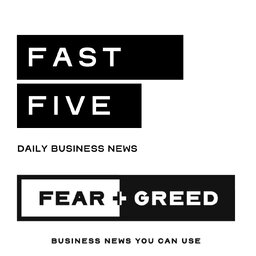Ask Fear & Greed: What does it mean when a stock goes ex-dividend?
Listener Mark asks: Plenty of stocks are going ex-dividend at the moment. What exactly does it mean and is it better to buy before or after the date they trade ex-dividend?
Join Sean Aylmer & Michael Thompson as they answer listener questions.
If you have your own question for Ask Fear & Greed, get in touch via our website, LinkedIn, Instagram or Facebook!
 Fast Five by Fear and Greed
Fast Five by Fear and Greed


